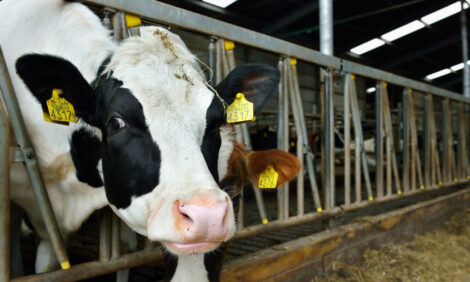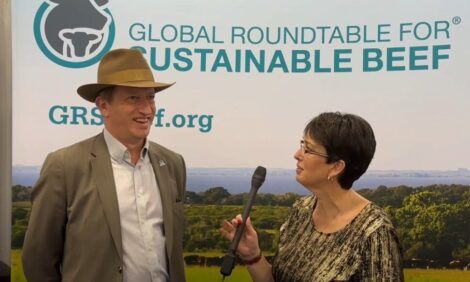



Study looks at impact of ferrying cattle, sheep in UK
Cattle and sheep are often transported between the Northern Islands and the mainlandThe impact of ferry journeys on livestock being transported between the Northern Isles and the mainland will be assessed as part of a new project aiming to maximise animal welfare while avoiding significant constraints on this important trade.
Several journeys are often required during an animal’s life to allow access to better grazing, trade in breeding stock, or for fattening, transport to markets and slaughter.
However, there is little objective scientific evidence to understand how cattle and sheep are affected by journeys involving ferry transport, and whether management and practices can be modified to improve animal welfare.
The project, led by Scotland’s Rural College (SRUC), will combine analysis of existing data on animal transports and specific data collection on several ferry crossings where temperature, humidity and motion measures of the vessel will be correlated with animal behavioural responses during and after the journey.
The project will specifically focus on the movement of animals from Orkney and Shetland to Aberdeen - from leaving the farm of origin to arriving at the market or destination farm and including sea freight journeys typically of between 9-15 hours.
Although some journeys are for slaughter, most are made in the autumn to meet the need to provide livestock with adequate nutrition during winter months, when available forage, housing and supplementary feeds are limited in the Northern Isles.
This flow of animals is an integral part of the sustainability of island communities and to meet the legal requirements for livestock journey times at sea, the animals are loaded onto specially designed one or two-deck cassettes. These cassettes allow for the provision of food and water as well as providing controlled ventilation and effluent collection and facilitating inspection of the animals in transit.
Lead researcher Professor Simon Turner, of SRUC’s Animal Behaviour and Welfare Research Group, said: “Livestock transport is an essential part of agricultural practices - if these animals do not make these journeys, there is a welfare risk of prolonged hunger from inadequate feeding, or housing in crowded conditions on their home farms. However, it is important that the welfare of animals during the ferry transport is maximised as much as possible.
“Currently, only limited information is available relating weather conditions and sea state to the actual motion of vessels over an extended period. Anecdotal evidence suggests animals generally travel very well in the cassette system but may sometimes appear ‘tired’ when they have made rough crossings, suggesting that factors like sea and weather conditions are likely to impact on livestock welfare.
“Being able to provide evidence-based advice on when animal welfare will be most impacted by journey conditions will be important for providing animal welfare policy that protects livelihoods as well as animal welfare.”


